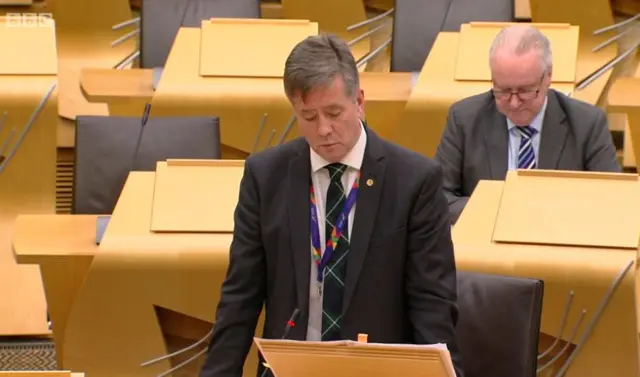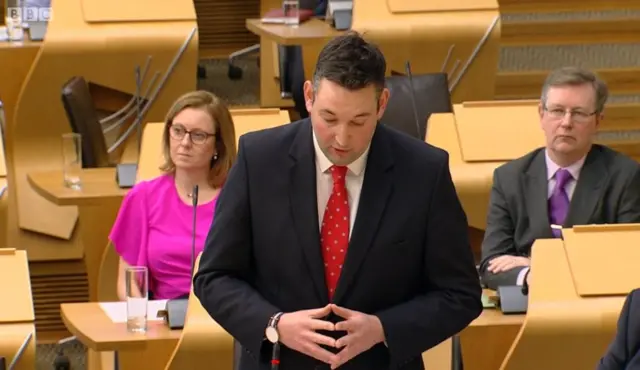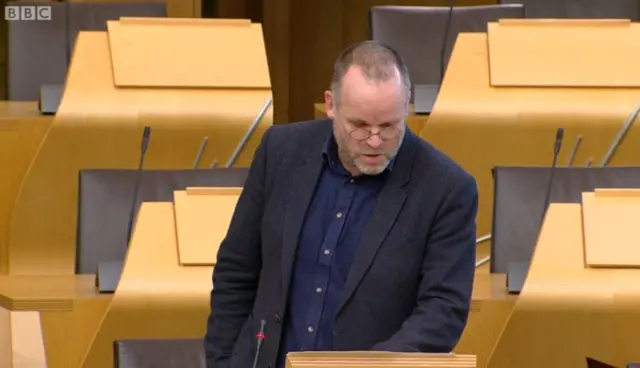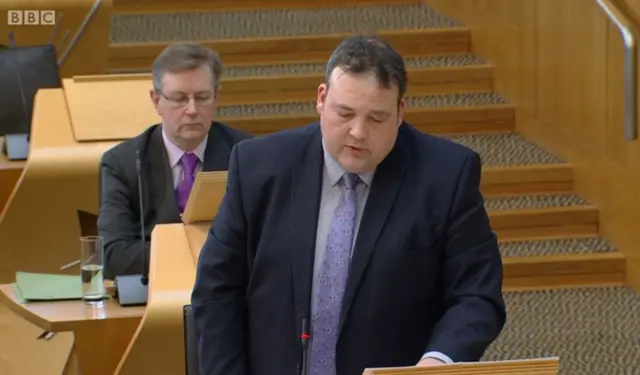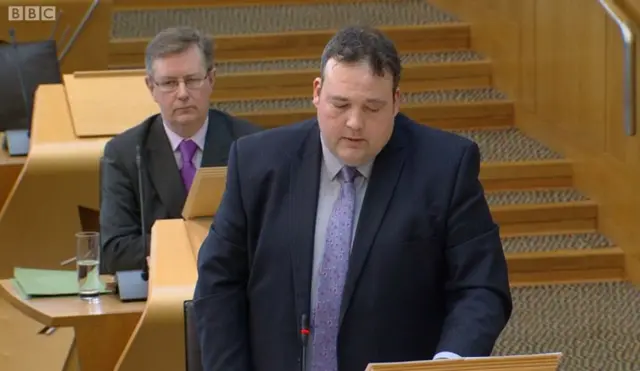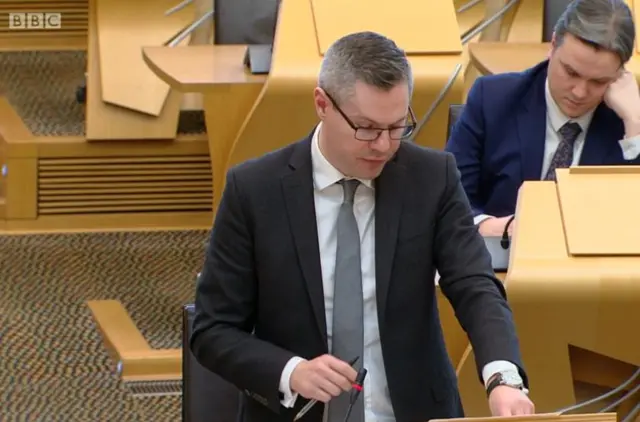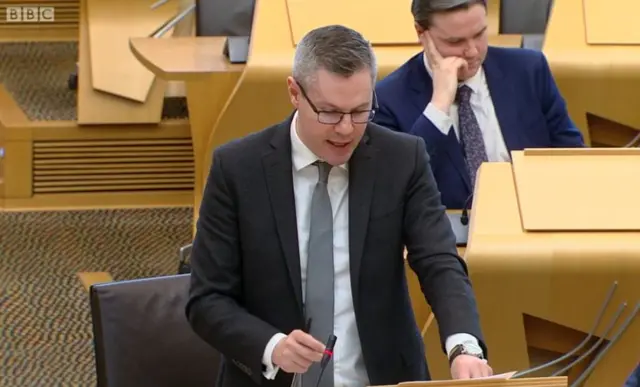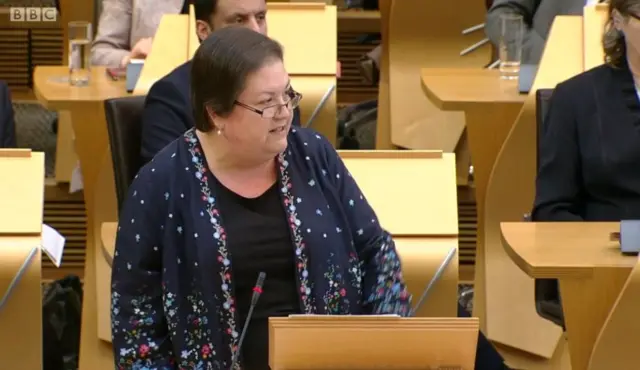'The time has come for a root-and-branch review of public procurement'published at 17:01 GMT 14 March 2018

Labour MSP Lewis Macdonald
Labour MSP Lewis Macdonald says the SNP has has responsibility of public procurement policy for 11 years and it cannot seek to place the blame elsewhere.
He expresses concern that the new social security agency will employ agency workers rather than temporary staff.
Economy Secretary Keith Brown says this is not the case.
Mr Macdonald says unitary payment charges as part of the NPD model will still need to be paid for decades to come.
"The time has come for a root-and-branch review of public procurement."
The Scottish government must think again about the public sector's relationship with contractors, the Labour MSP argues, though he accepts that many private companies do have good working practices.
"Companies can surely not be allowed to benefit from Scottish public sector contract while taking no responsibility for the Scottish economy," he concludes.

